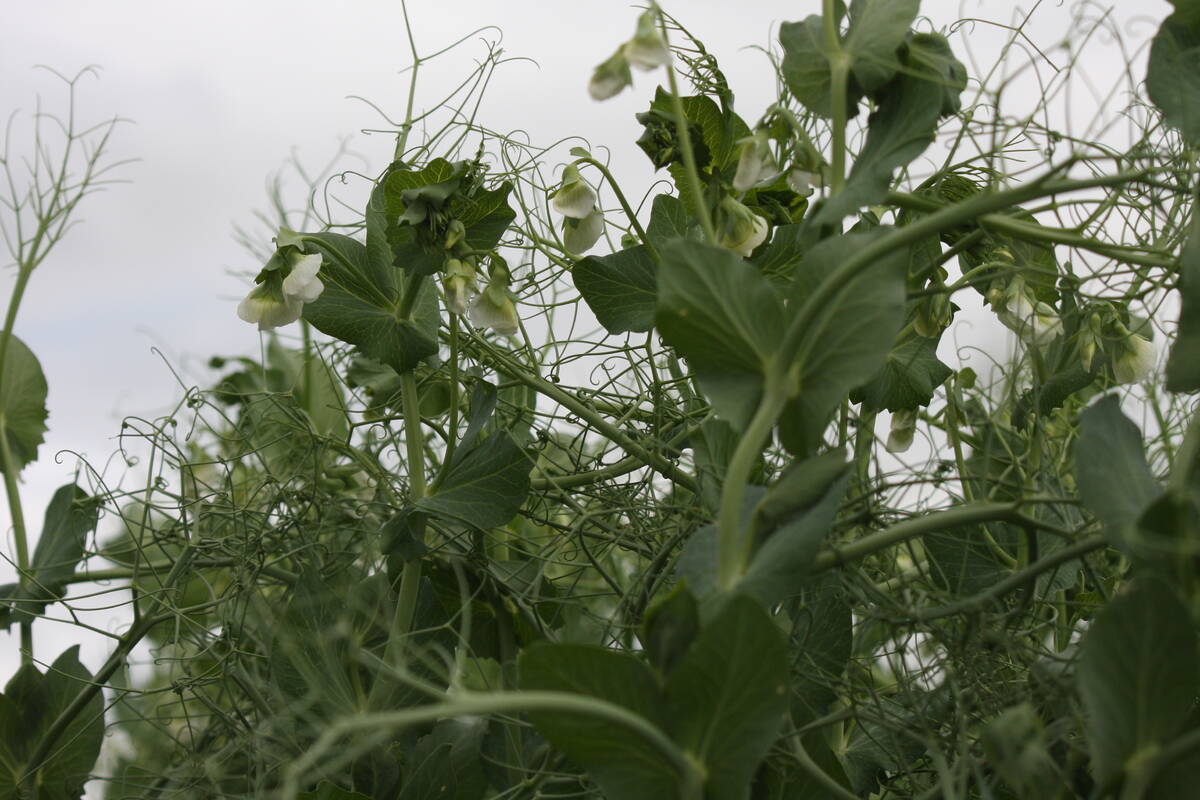The attempt by northwestern Alberta farmers to build a new generation co-operative packing plant has suffered a setback from higher-than-expected start-up costs and lower-than-expected government support.
But Neil Peacock, president of Peace Country Tender Beef Co-op, said the group hasn’t given up.
First, it plans to open a value-adding plant in Berwyn, Alta., in early 2006, producing packaged cuts and sausage. The cattle will be custom slaughtered at a federally inspected plant in British Columbia.
And in the spring, the co-op hopes to start building a scaled-down slaughter plant, maybe in Dawson Creek, B.C. It will have a 50-animal-per-day slaughter capacity, much smaller than original plans.
Read Also

High pea yields shock farmers
There is going to be a massive pea carryout at the end of this crop year.
“We will go ahead with the slaughter plant on a smaller version but start the value-added plant first,” Peacock said in a telephone interview from B.C., where he was working on a forest industry contract.
“We were naive about how much a slaughter plant would cost and what help we would get from government.”
The Peace River producer and National Farmers Union member had earlier told the NFU annual convention in Ottawa that federal government help for creating a domestically owned packing alternative to the large multinationals is largely an illusion.
Ottawa has offered loan loss guarantees to cover some of the losses if private lenders invest in new domestic federal-standard packing plants that fail. There have been few private lender takers.
Ottawa has offered to match some of the funds invested in slaughter plants by producers who invest at least $1,000. Projects in the planning stage say that is not enough.
Peacock told the NFU convention that governments, both federal and provincial, have over-promised and under-delivered.
“I think the programs were designed to be announced but never used,” he said. “Our attitude now is that we are on our own. We will plan what we can finance ourselves.”
Tender Beef is promising meat products that are hormone free and 100 percent tested for BSE.
He said there will be no lack of world customers.
“Negotiating trade deals and lower tariffs is not the issue,” he said. “If we provide customers with the product they want – they want to know if it is safe, how it was raised – then they will not create barriers to its import.”
Peacock said in the interview that the Dawson Creek site for the slaughter plant is in doubt because some Tender Beef Co-op members are elk producers and the B.C. government has not yet given approval for elk to be slaughtered there.
“If they don’t allow elk, we will move into Alberta,” he said.
The decision to build the slaughter plant in Dawson Creek came after promises of help from the B.C. government, but Peacock said the help never came.
He said the co-op has 675 members who bought $60 shares that require they send one animal to the plant each year. The minimum investment is $600 or 10 shares and a commitment to market 10 animals.














